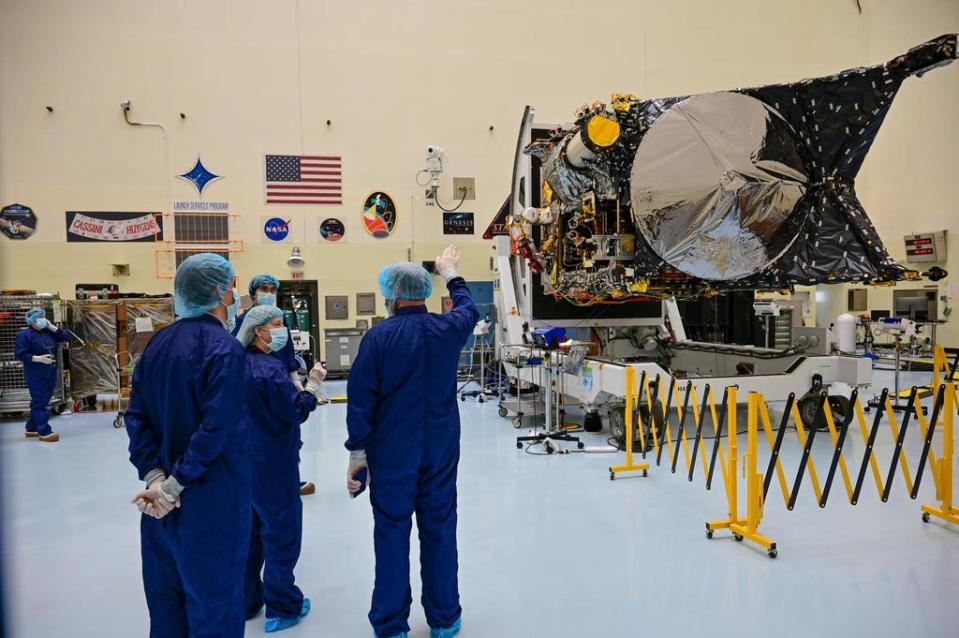Nasa’s Psyche mission delayed until at least late September

Nasa’s Psyche mission, which was scheduled to lift off on 1 August for the main asteroid belt, will now launch no earlier than 20 September due to a software problem on the spacecraft.
“An issue is preventing confirmation that the software controlling the spacecraft is functioning as planned,” a short statement from Nasa published on Tuesday read. “The team is working to identify and correct the issue.”
Psyche the spacecraft is set to explore Psyche the asteroid, a large, metallic space rock 1.5 billion miles away in the main asteroid belt between Mars and Jupiter. Composed largely of iron and nickel as opposed to ice and rock like many asteroids, and measuring 140 miles in diameter, some scientists think Psyche could be the core of a planet that began, but ultimately failed to fully form.
Psyche the spacecraft was flown from Nasa’s Jet Propulsion Laboratory (JPL) in California to Kennedy Space Center in Florida on 2 May for final testing and attaching the spacecraft to its launch vehicle, a SpaceX Heavy Falcon rocket. The software issue cropped up during testing.
Nasa JPL spokeswoman Gretchen McCartney declined to elaborate on the spacecraft’s software issue or comment on what launch windows Nasa is eyeing for a Psyche launch now coming, at a minimum, nearly two months later than scheduled, referring The Independent to Nasa’s brief statement from Tuesday.
Launch timing aside, Psyche the spacecraft is scheduled to make a gravity assist flyby of Mars in May 2023 in order to set itself on a course for Psyche the asteroid, arriving at the metallic space rock in early 2026. The spacecraft will then spend at least 21 months studying the asteroid.
Equipped with 800-square-feet of solar panels, Psyche will be the first spacecraft to use solar-electric propulsion to travel beyond the Moon. Its Hall-effect thrusters use electricity from the solar panels to propel charged particles of propellant from the spacecraft’s aft side, generating a small amount of thrust very efficiently to allow Psyche to build up tremendous speed over time while carrying far less fuel than would a chemical rocket.

 money
money 